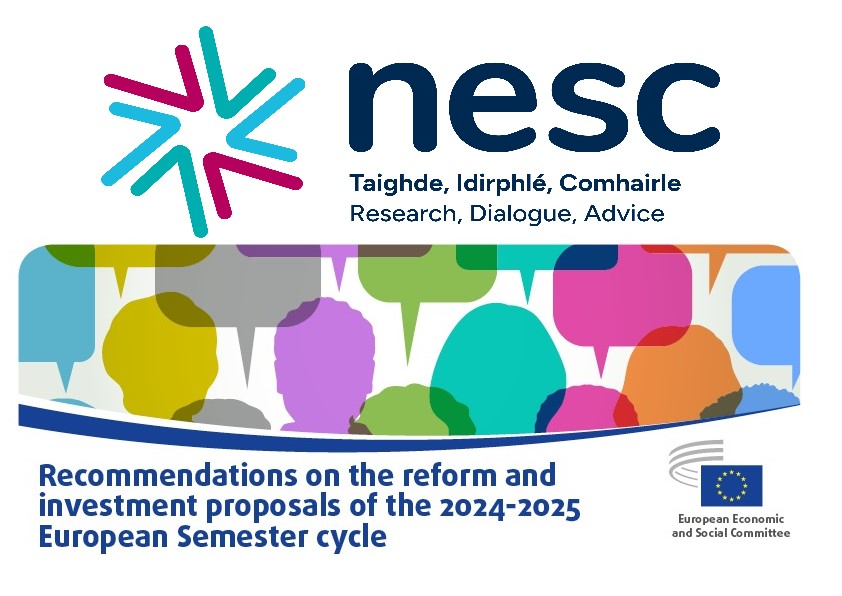You are here: Home > News & Events > ‘Policy must be seen to be able to address structural challenges’ – NESC Remarks to the EESC on 15/4/25
‘Policy must be seen to be able to address structural challenges’ – NESC Remarks to the EESC on 15/4/25
- 16 April 2025
- Topics: Economic Social
- Types: News

The NESC Secretariat told a meeting of the European Economic and Social Committee (EESC) that more work is needed to address infrastructure and services deficits, to manage transitions, and to ultimately improve the lived experiences of people.
On 15th April, the Section for Economic and Monetary Union and Economic and Social Cohesion (ECO) of the EESC met to finalise its recommendations on the reform and investment proposals formulated as part of the 2024-2025 European Semester cycle. The meeting brought together representatives from EU Institutions, national economic and social councils, and decision-makers for a discussion of the findings, providing an opportunity to exchange views and to share experiences (to view the event programme please click here).
Dr Cathal FitzGerald, NESC Senior Analyst, provided the meeting with a summary of the process in Ireland. NESC hosted a roundtable on these issues in January, where discussions focused on national reform, as well as investment proposals and their implementation, as part of a wide consultation across EU Member States. The report of this meeting can be accessed here.
“The priorities identified by the European Commission in the country-specific recommendations are seen as positive. Sound fiscal policies remain important for long-term financial stability and growth,” Dr FitzGerald said. However, he added that “at the same time, such policies must result in better lived experiences for cohorts of citizens, in terms of healthcare, equality, inclusion, better work, and combatting poverty.”
“Policy reform and investment must be able to – and be seen to be able to – address structural challenges in social protection, energy, infrastructure, and people-centred services. In parallel, public policy must be an effective vehicle for the green transition and environmental goals,” Dr FitzGerald told the EESC meeting. “Meaningful civil society consultation, realistic timeframes, and active follow-up will help. As will greater transparency in the decision-making process, including access to plans prior to submission. Clear guidance on consultation, not tick box exercises, is needed. And civil society needs to see how their views have impacted on decisions,” he concluded.
The EESC’s final recommendations on reform and investment will be posted here.
![]()
Follow us @NESCireland


